Quick Answer
No. Don’t do that. Pouring grease down the drain leads to significant plumbing problems starting from drain clogs. Also, this will combine with the grease extracted by the meat and soap detergents and create huge problems.
We often throw or pour things down the drain without even realizing how harmful it can be to the drain and piping system.
And that’s why such things or food substances later lead to several complications within the drainage and piping system.
Most foods we intake and throw the residues down the drain contain saturated fats, oils, and grease.
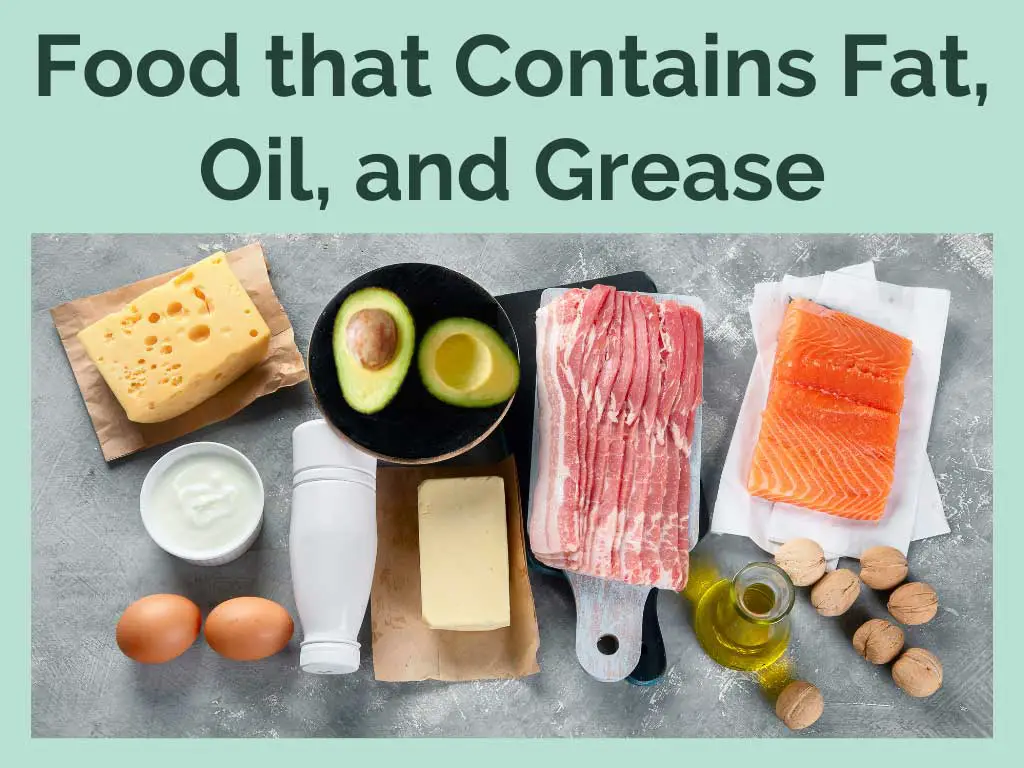
But is pouring grease down the drain a good idea, or can it harm the drainage system?
Let’s clear out this confusion. In this article, I’ll reveal the effects grease can have on the drain. Check it out!
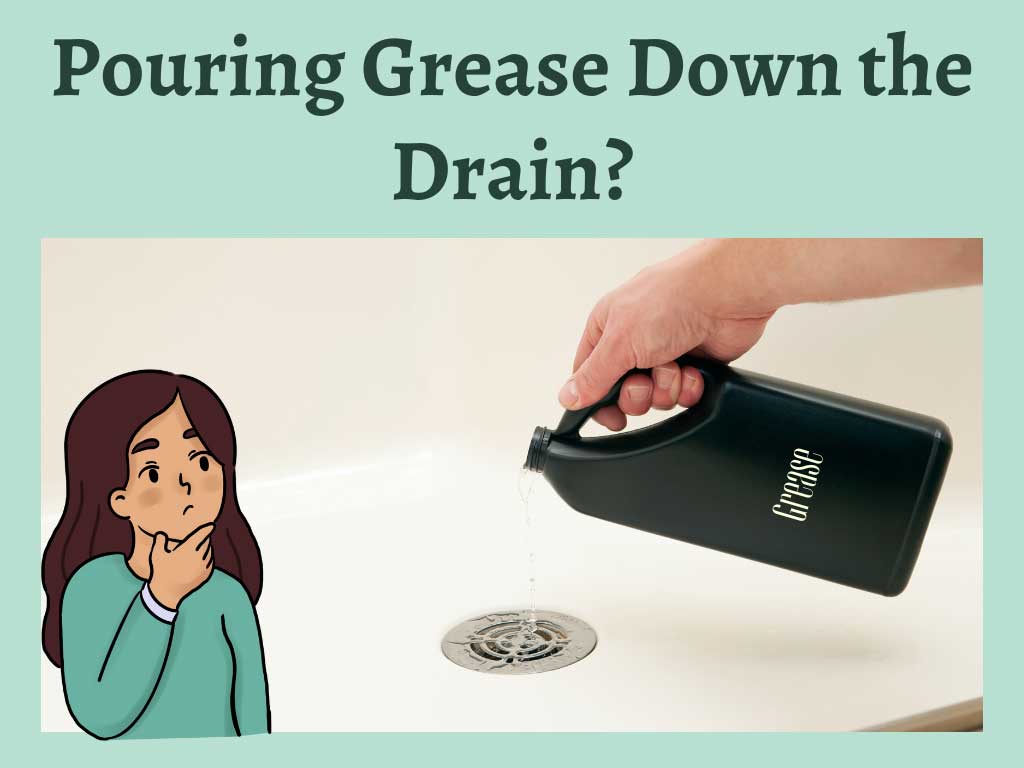
Grease doesn’t only harm the drainage system but has the potential to damage the whole sewage system.
It is one of the most significant causes of drain clogs and sewage system malfunctions. It also gradually narrows down the drain pipes’ diameter by forming buildups.
Dangers of Pouring Grease Down the Drain
It might seem easy to throw grease down the drain, but it can be detrimental to your plumbing system. Grease is a common cause of clogged pipes and can cause severe problems if not disposed of properly. This blog explores the dangers of letting grease go down the drain and discusses alternative ways to dispose of it safely.
When grease is poured down a drain pipe, it can solidify over time and build up inside the pipe. This buildup can restrict water flow and cause blockages, slowing or clogging drains. In severe cases, grease buildup can cause pipes to burst, leading to costly repairs.
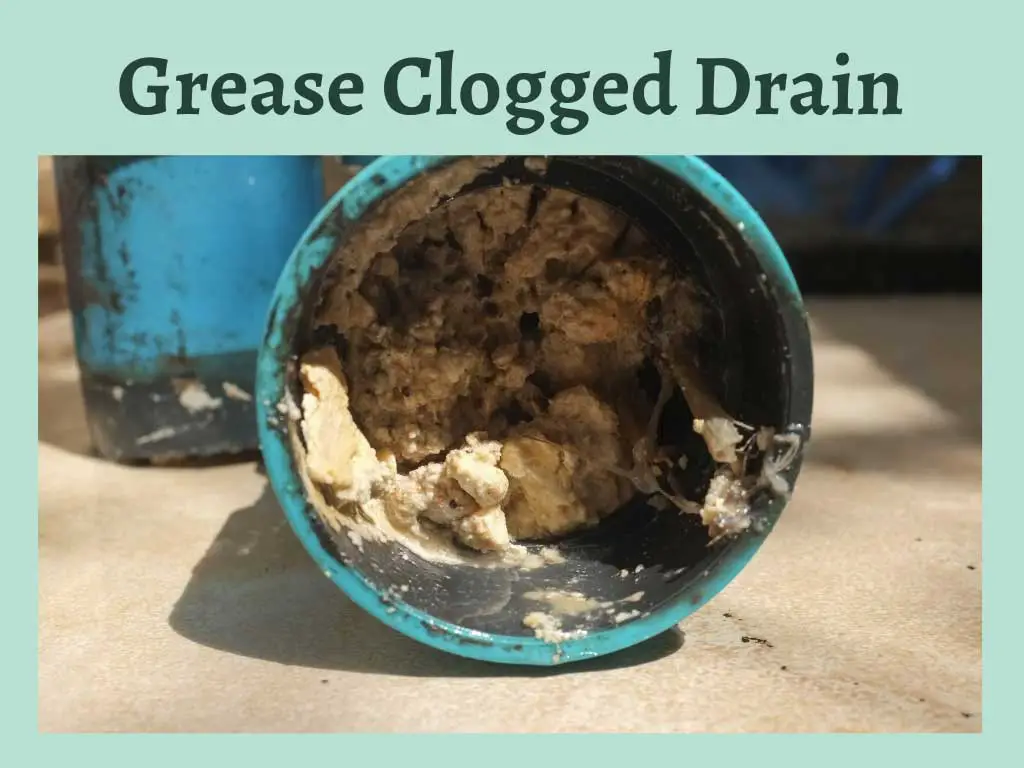
Flushing grease down the drain can also be nasty for the environment. Fat entering sewage systems causes blockages and contamination, leading to costly cleanup operations and potential environmental damage.
Overall, it’s essential to be aware of the dangers of pouring grease down the drain and find a safe and responsible way to dispose of it.
Let’s dig into more details.
How Does Grease Form?
Grease can build up in drains when the unsaturated fats and oils found in many everyday foods are poured into the sink.
Almost all foods produce fat except fruits and vegetables. This includes meat, eggshells, coffee, dairy, and other essential everyday foods.
The grease becomes liquid and can easily flush down the drain when it gets hot.
However, as it cools, it will begin solidifying and may stick to the pipe’s walls. Over time, this can form a thick layer of grease and restrict water flow through the line.
Read for more information on the study done on how to form grease inside the drain here.
In addition, grease binds with other substances, such as food particles and soap scum, to increase drain clogs. These clogs are difficult to remove and may require professional cleaning to remove.
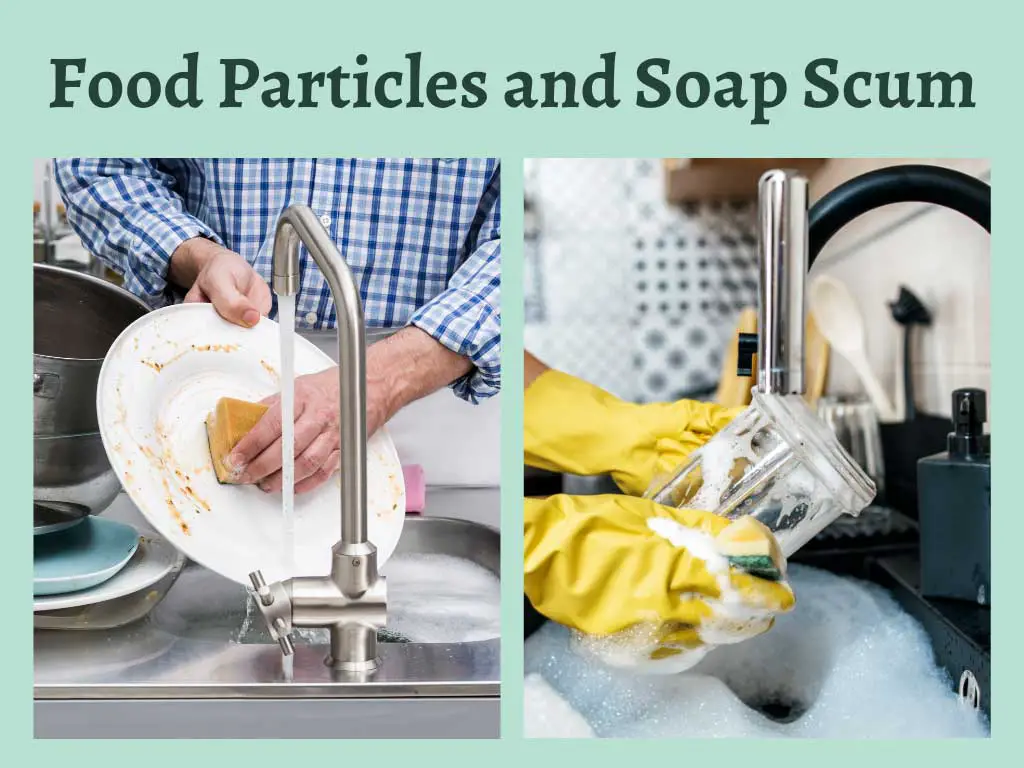
Overall, it is essential to be mindful of the grease poured down the drain and disposed of responsibly to prevent buildup and clogs in the pipes.
How Does Grease Affect the Drain?
Grease has a very thick, weird texture that is in the middle of both sticky and slippery. This is the reason why grease does not flow down the drain smoothly.
Interestingly enough, fats and oils from the different fatty foods cling to the walls of the drain pipes. These fats and oils gradually cool down and convert to grease.
With time, more and more grease joins the pipe wall, causing a thick coating to form around the internal surface of the drain pipe walls.
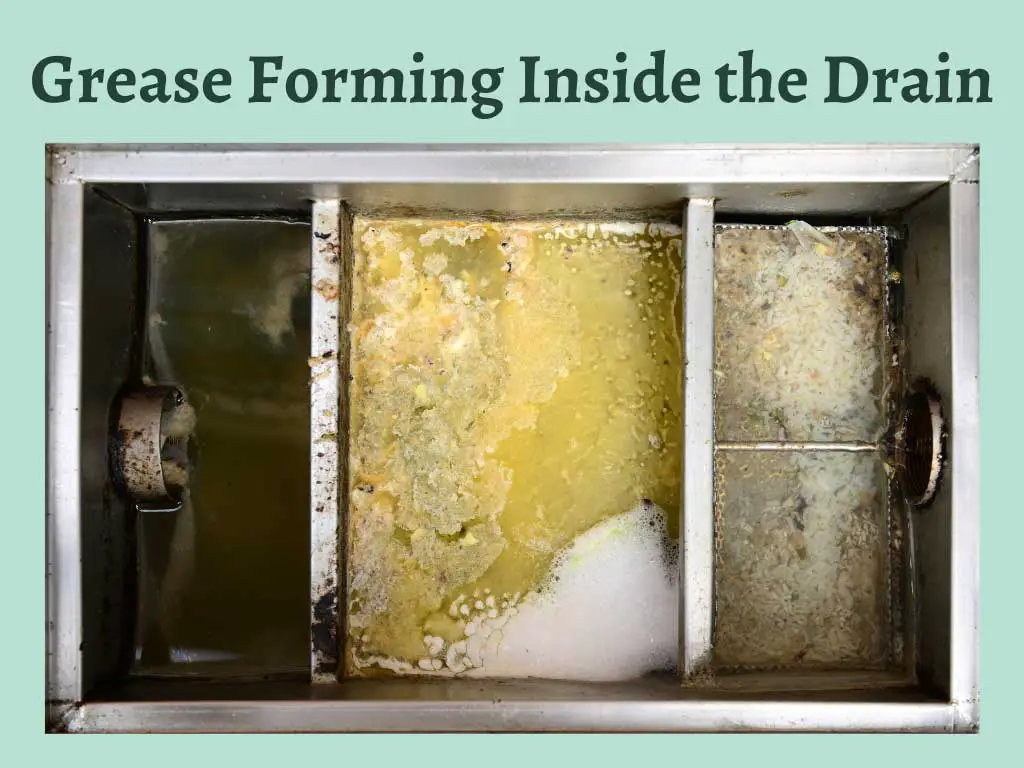
Moreover, many times due to pouring soap, vinegar, or warm water, the solid grease stuck to the drain pipe walls gets loosened and falls, accumulating in the bottom of the drain.
The bottom of the drain is generally more relaxed than the upper portion, for which the grease gets very easily and quickly solidified after reaching there. And then, the solid grease floats on water.
While grease accumulates at the bottom, spontaneously falling off the pipe walls and getting solid there, it creates a strong layer of concrete grease wall within a large area of the pipe bottom.
This completely blocks the waste substances thrown down the drain from flowing away with water to the sewage system.
That is how to grease buildup significantly impacts the drainage and sewage system by blocking the way the wastes flow down.
Therefore, boiling water is one of the best and easiest solutions for unclogging those challenging, greasy drains. Want to know more? Check out our article “How to Unclog a Grease-Clogged Drain” for all the expert tips and tricks!
What is the Right Way to Dispose of Grease Residues?
Even though most people prefer to throw the leftover grease residues down the drain because it is much easier and time-saving than any other way of disposing of it, it risks the health of your drain, pipe, and sewage system.
That’s why it is better to dispose of it properly, which will lessen the risks of drain clogs and buildups throughout the pipe at a massive level.
You can try to avoid throwing away the residues of foods that have been mentioned into the drain.
Instead, dispose of them in the food waste bin. Here, you might have a concern that it will cause your waste bin to smell very bad.
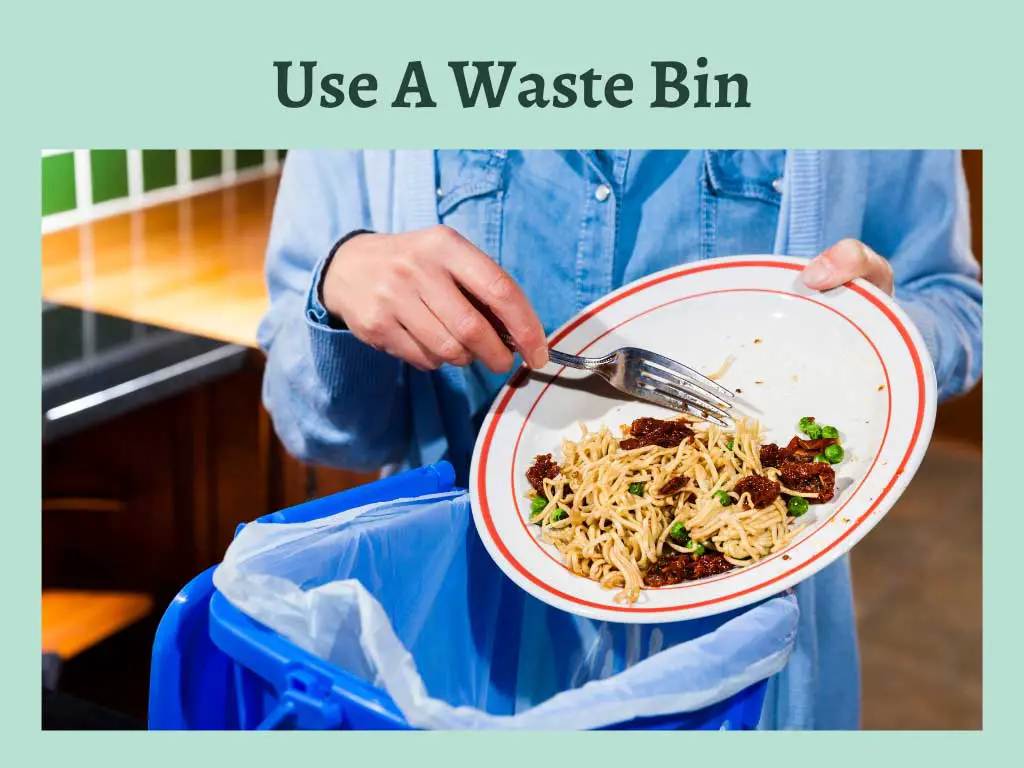
For that, you can wrap these foods with plastic wraps or grocery bags and then throw them away in the food waste bin.
If you need to dispose of liquid grease food residues such as milk or oil, pour it into a spare non-recyclable can and throw it in the food waste bin.
When it comes to leftover oils and fats on the pan’s surface after a cook, you can use paper towels to wipe them off. Then, throw the paper towel in the trash bin.
This might sound like a bit more hassle, but it will save your drain and pipes from significant damage. So, do it for the sake of your drainage system and to avoid more significant troubles in the future.
How to Recycle Grease Residues?
In case you didn’t know that food grease residues can be recycled for other cooking purposes.
You must pour the leftover oils and grease into a bottle or bowl and cool it down. Don’t pour the hot oil into a plastic bottle or bowl. Use glass or any other material.

But if you want to pour it into a plastic bottle, cool it down first. And then refrigerate until using in the next cook.
Or, if you’re cooking many dishes one after another, use the same pan with leftover oils to fry and season food items.
How to Prevent the Formation of Grease Required to Dispose of?
The best way to prevent grease residue formation after cooking something is by using fewer oils in food and cutting down heavy food items from the regular diet list.
Fats and oils are responsible for forming clots within the drainage pipe and producing cholesterol clots within the heart’s arteries.
This leads to different heart diseases within people and a high risk of heart attack in aged people. Moreover, fats and oils are also the first and foremost cause of obesity.
That is why it is better to cook food using alternative healthier methods that require less fatty and oily additions.
Such as baking, roasting, broiling, and streaming are cooking techniques that require less oil than other methods.
Again, using vegetable stock or water to boil meats is a healthier substitute for oil and butter. This small switching of cooking techniques will save you from several health complications and drainage system issues.
Final Words
I think I was able to help you with everything you need about pouring grease down the drain.
And it is no doubt that pouring grease down the drain is one of the worst things you can do to your drains and pipes.
And so, it is essential to reduce this habit of throwing greasy substances down the drain to improve your drainage system.

James is an organic fertilizer professional who owns a successful organic fertilizer company in new jersey. He is an expert in waste management in both houses and community cases. In his free time, he loves to write about his experiences in the field.


2 thoughts on “Can You Pour Grease Down The Drain?”
Comments are closed.